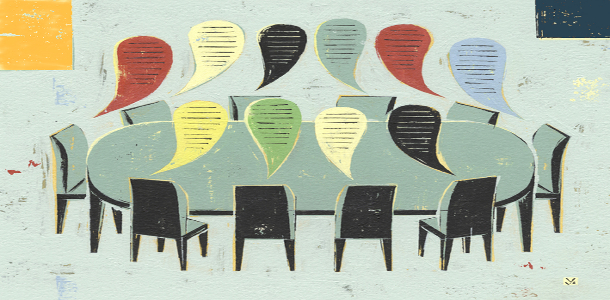




Posted by laurajane on May 11, 2011 in Uncategorized | Comments Off on At a loss for words? Make them up . . .
At a loss for words? Make them up . . .
I recently attended a performance of William Shakespeare’s Twelfth Night by The Baron’s Men, a local acting troupe dedicated to performing Elizabethan plays using historical staging and costumes. Like all other productions from this troupe, Twelfth Night was brilliantly cast and played. In addition to relishing in the pageantry and authenticity of play, the word nerd in me was enlivened when the program listed “a sampling of unfamiliar vocabulary.” Words such as “mellifluous,” “contumely,” and “perfidious” were defined. I enjoyed listening for those...

It takes two brains . . .
How many times has this happened to you? You’ve been working for hours on a document, trying to meet a tight deadline. You finally finish. Your document is well written, error free, and ready to be sent to your boss and your boss’s boss. You craft your email, hit the send button, and then relax. Check this one off your to-do list. About two minutes later, you receive an email . . . “Did you forget the attachment?” Horrified, you check your sent items and indeed, you forgot to attach the document. You craft another email — this one with a self-disparaging joke to...

For him the bell tolls
You knew this one was coming. After all, what kind of language/usage/grammar/ random thoughts blog would this be if I failed to cover who versus whom. Before you click the back button, please forbear and be patient. Our exploration of who versus whom will be painless. Trust me. There will be no discussion of direct and indirect objects. No figuring out the subject or the object in the sentence. And no one is diagramming anything. In fact, there’s a really easy way to tell when you should who or whom in a sentence. If we had only been taught this in school . . . Consider...

Form ever follows . . .
“Form ever follows function” is a phrase often tossed around by graphic designers, architects, and industrial designers. It means that if an object performs a certain function, its design must support that function to the fullest extent possible. If a designer doesn’t understand the function of what they’re designing, they make wrong decisions about the form. For a clear example of this failure to understand function, look no further than the restroom door at any trendy restaurant, bar, or club in town. When it comes to communicating whether a bathroom is...

Spell more good
When I started this blog, I promised not to make it a showcase for impertinent remarks. Since then, I’ve written about punctuation, usage, words and their shades of meaning, and how to proofread for success. Certainly, none of these topics would be considered impertinent . . . Now it’s time to move on to spelling. (I heard it. It was faint, but I heard that collective groan.) But instead of a post about commonly misspelled words and how to spell them correctly, I’m going to confine this post to a short quiz and a few sentences. Please make note of which words from...

Text can shift . . . part 2
In last week’s blog, I discussed the inevitability of human error and how mistakes in print are there for everyone to see. It’s kind of like showing up for a presentation in your underwear . . . there’s nowhere to hide. The bad (and maybe in some cases, the good) is out in the open for everyone to see. Of course, this doesn’t mean you should stop trying to alleviate errors. Don’t show up in your underwear on purpose. And don’t skip the presentation just because you’re in your underwear. (Okay, okay. I know. I’ve run wild with the underwear analogy, but...













